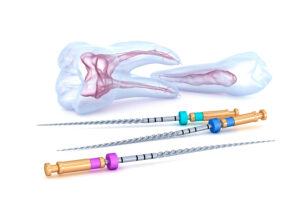 When a tooth becomes infected, this could mean major discomfort and even lead to tooth loss without treatment. Which is why an endodontic procedure known as a root canal may be necessary! In today’s blog, your Allen, TX, dentist talks about how we can ease discomfort with our root canal treatment.
When a tooth becomes infected, this could mean major discomfort and even lead to tooth loss without treatment. Which is why an endodontic procedure known as a root canal may be necessary! In today’s blog, your Allen, TX, dentist talks about how we can ease discomfort with our root canal treatment.
The Causes and Dangers of Infected Teeth
An infection means that the pulp, your tooth’s nerve center, has been exposed to harmful bacteria. This could be through an untreated cavity, or as a result of serious injury that exposes the inner tissues to bacteria, such as a crack or chip. Wanting signs include painful tooth sensitivity and toothaches, discomfort when eating or biting down, swelling near the tooth, jaw pain, or even a discharge from the aching tooth. Without treatment, you risk the infection growing so severe that the tooth essentially dies, and the infection then reaches other teeth or moves into the jaw. Which is why when you experience persistent pain on a tooth, you should alert us right away.
The Root Canal Procedure
With a root canal procedure, we can treat the infected tooth and bring relief. To begin, we will take detailed digital x-rays to identify the position and severity of the infected area. We then administer a local anesthetic and possibly sedation to keep you comfortable as we open the tooth and remove the tissues from within. The interior is then thoroughly cleaned and a special restorative filling is added. The last step involves capping the tooth with a dental crown. The restoration is designed to not only absorb daily bite forces and pressure, but provide a natural appearance that blends with your smile. You then enjoy optimal oral health, and relief from major discomfort too!
Taking a Preventive Approach
Measures can also be taken to help right tooth decay and infected teeth. For example, you can cut back on the sugary and starchy foods and drinks that feed harmful bacteria, which limits plaque buildup. You can also fight plaque, which could weaken and erode enamel, by brushing for two minutes each day in the morning and at night. You also need to floss every evening before bed as well. You need to see us every six months as well, since a checkup lets us identify concerns in the earliest stages. The cleaning then removes all plaque buildup to prevent issues like cavities, infection, and gum disease in the future.
Talk to Your Allen, TX Dentist About Endodontic Treatment
Our team is eager to help you smile without discomfort again! If you want to know more about protecting your oral health or if you are ready to book an appointment, contact your Allen, TX, dentist, Dr. Torrens-Parker, by calling 469-342-6644.


